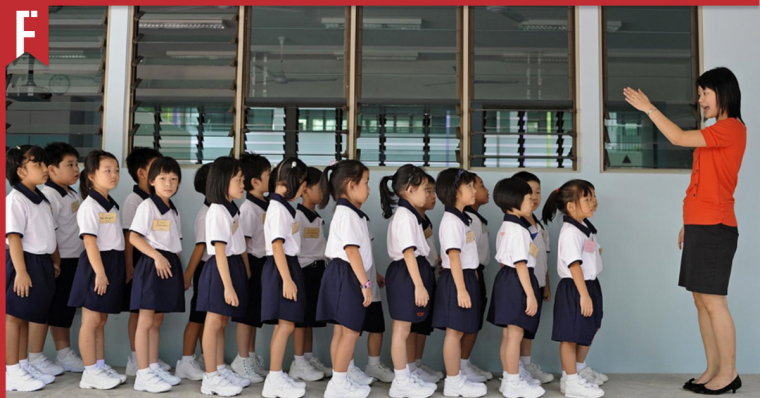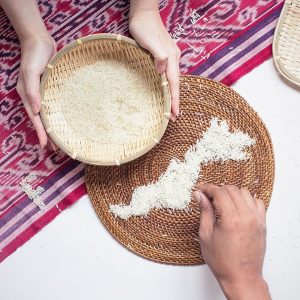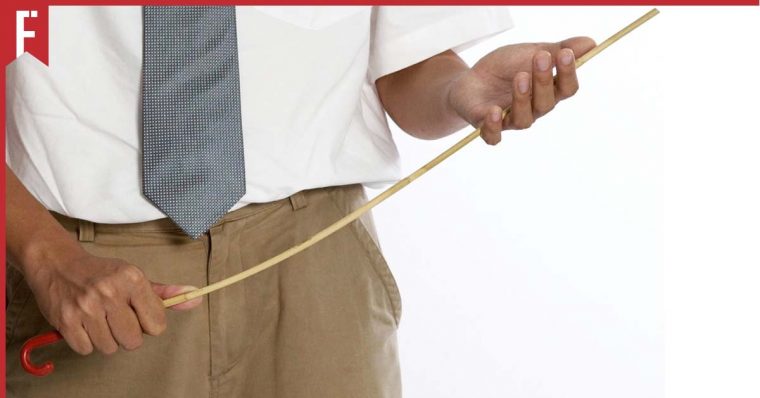
No matter how old we are, we all have memories of the super garang teacher that everyone in class was scared of.
For me and my friends, this was our maths teacher, Mrs K (name changed to protect privacy) because she was the only one who still used the rotan regularly. I remember one particular incident where several of us forgot to do our homework. She made us all line up in front of class and rotanned our hands one by one.
We all went back to our seats, sniffling and clutching our painful hands and promising not to do it again. Naturally, this new studiousness only lasted for about a week before I once again found myself in front of the class with an empty workbook in hand.
“Stick out your hand!” screeched Mrs K.
I don’t know if she was in a particularly bad mood or what, but on that day she decided to use a thick wooden ruler instead of a normal thin rotan. She hit my hand hard enough to break the ruler, then yelled at me for not being able to write afterwards.
“I hope you learn your lesson. Don’t do this again!” she said.
Well, I Learned My Lesson Alright. But Probably Not The One She Wanted
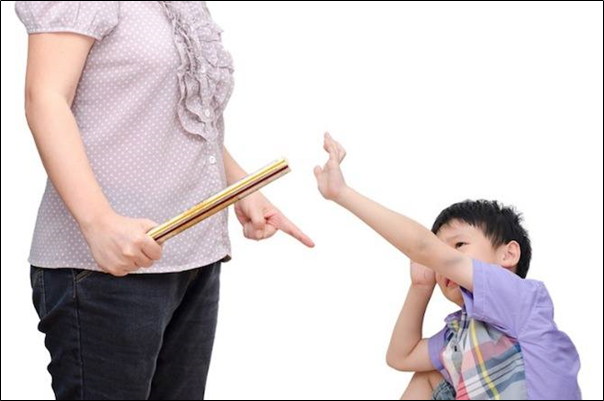
I suppose that Mrs K believed that these punishments would make us want to study harder or something. But unfortunately for her, things didn’t work out that way.
Instead, we ended up paying one of my friend’s older brother to do our work for us. He only got like RM2 a page, but when you multiply that by around four to five kids every week, that money starts to add up. We never got sent to the front of class again, while he got some extra spending money to buy… whatever new trendy toy was happening at the time. I think it was Beyblade or something.
Don’t worry, we still learned maths anyway, but only because all of our parents were sending us to after school tuition classes.
Plus, that incident taught us all a valuable lesson: throwing money at people is a great way to solve your problems. This is a lesson that has remained with me even up till today.
Sadly, Not All Garang Teachers Are As “Helpful” As Mrs K

In fact, sometimes they can be downright dangerous!
On 20 May 2022, a 15-year old girl was rushed into the ICU for heart issues after a teacher forced her entire class to run 30 laps with their face masks on to punish several students for not doing their homework.
According to the teen’s aunt, the girl had run around 15 laps before starting to experience discomfort. The teacher allowed her to walk for the remainder of the laps, but she continued experiencing breathing difficulties and chest pain even after returning home.
Oops?
Although the teacher has since apologised, the incident has prompted calls from the National Union of the Teaching Profession (NUTP) urging the Education Ministry to update guidelines regarding student punishments.
“A teacher should know the guidelines for punishing students, and if any teacher violates them, the discipline teacher of that school should investigate,” said NUTP Secretary-General Wang Heng Suan.
Other parties such as Parent Action Group for Education President Datin Noor Azimah Abdul Rahim pointed out that punishments like forcing students to run laps while wearing a face mask are against official guidelines.
“The parents have made amends with the school and teacher but what still remains is the way the punishment was imposed on the entire class. The teacher should be reprimanded for putting the students at risk,” said Azimah.
“Forcing students to run around in the heat while wearing face masks is an archaic practice. Teachers should inspire students instead of discouraging them from learning.”
But There Are Still Those Who Support These “Archaic” Punishments

Given that a student had to be sent to the hospital, one would assume that everyone is on the same page regarding these “archaic” punishments. However, while many of the experts believe that corporal punishments are… ineffective, there are some who believe otherwise.
The loudest of these voices comes from Kedah Menteri Besar Datuk Seri Muhammad Sanusi Md Nor, who recently argued that we shouldn’t remove the teacher’s ability to punish their students.
“I think if students can’t be fined, can’t be caned, can’t be reprimanded and we can’t scold them, we are just inviting danger into the (education) system,” he said.
“Maybe there are great experts who say that we can’t do this and we have to do that, but in my opinion, we will be reduced to just breeding ‘ayam daging’ (broiler chickens) in schools.”
Speaking of ‘great experts’, Sanusi went on to argue that Malaysian parents are “pampering” their children by demanding less severe physical punishments. He declared that an American or European style school system wouldn’t work in Malaysia because “we are different”… somehow.
“God created us of different races and skin colours so that we can get to know each other,” he said.
Here We Go Again…

Is it just me, or do these “Malaysians are different! Western ideas won’t work here!” guys sound exactly like those weird American gun nuts who insist that European style gun restrictions wouldn’t stop their school shooting problem because “America is special!” or whatever?
Putting aside the… unfortunate racial implications of his statement, Sanusi’s ideas seem rather… I hate to say it, but this just screams boomer mentality.
To be fair, Sanusi is willing to admit that teachers should follow guidelines and avoid going overboard with punishments. And at first glance, his argument that each country’s educational system should be developed based on their local cultures rather than a universal standard does make some sense.
But the more you think about it, the more this idea feels… underbaked.
First Of All, Are Malaysian Children Really “Pampered’?

I don’t know about you, but my parents had zero problems with me being rotanned in school. In fact, I don’t remember anyone in my class being so “pampered” by their parents.
But then again, it has been a long time. Maybe Malaysian parenting culture has changed over the decade or two since I was in primary school?
The answer: not really.
A 2019 YouGov survey found that 81% of Malaysian parents are fine with corporal punishment such as caning… at home, anyway. When it comes to schools, the results are a little more split. 47% of Malaysian parents think physical punishments should be allowed, 20% think that it shouldn’t be allowed and the remaining 33% are undecided either way.
But Does The Rotan Actually Help?
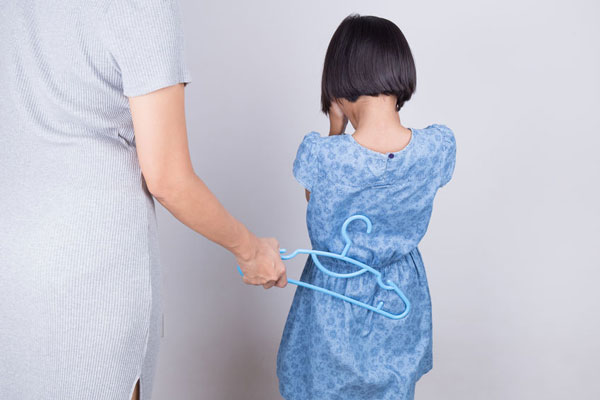
If having corporal punishments really made students learn better, then why aren’t Malaysian students already considered better than all those “pampered” American and European students?
Do we need to start beating them more? Is that how it works? Is there some kind of secret “rotan to test score” ratio to determine the perfect amount of punishment to min max our student’s learning abilities?
When you actually try to look at things from a scientific perspective rather than relying on claims of “this is how we’ve always done it!”, there’s a very distinct lack of evidence to back up the idea that caning and other physical punishments are actually useful.
In fact, it’s the opposite!
According to the World Health Organisation (WHO), corporal punishment is “linked to a range of negative outcomes for children”. These include negative long-term effects such as physical and mental issues, impaired socio-emotional development, poor educational outcomes and more.
From my own experiences, I can tell you that being rotanned never made any of us better at studying. Instead, we all became better at cheating the system.
Our Children Deserve Better

Yes, yes, I’ve heard all the old arguments before.
“That’s how we’ve always done it!”, “Kids these days are so soft and spoiled!”, “Just give the naughty kids a good whacking and they’ll be good!” and of course the good old “I got caned as a kid and I turned out fine!” (spoiler alert: they didn’t).
When it comes to things like education, I feel that it’s important to stay up to date. Clinging onto tradition simply for the sake of tradition is not only pointless, but actively harmful to our children.
It’s fine to feel nostalgic about the “good old days”, but if we want Malaysia’s younger generation to grow up to become competent and educated adults, we must put aside these outdated traditions and develop a sensible and modern educational system.
After all, our kids already have far too many problems piled on top of them as it is. To learn more, check out:
Why Are Malaysians So Bad At Teaching Their Kids?
